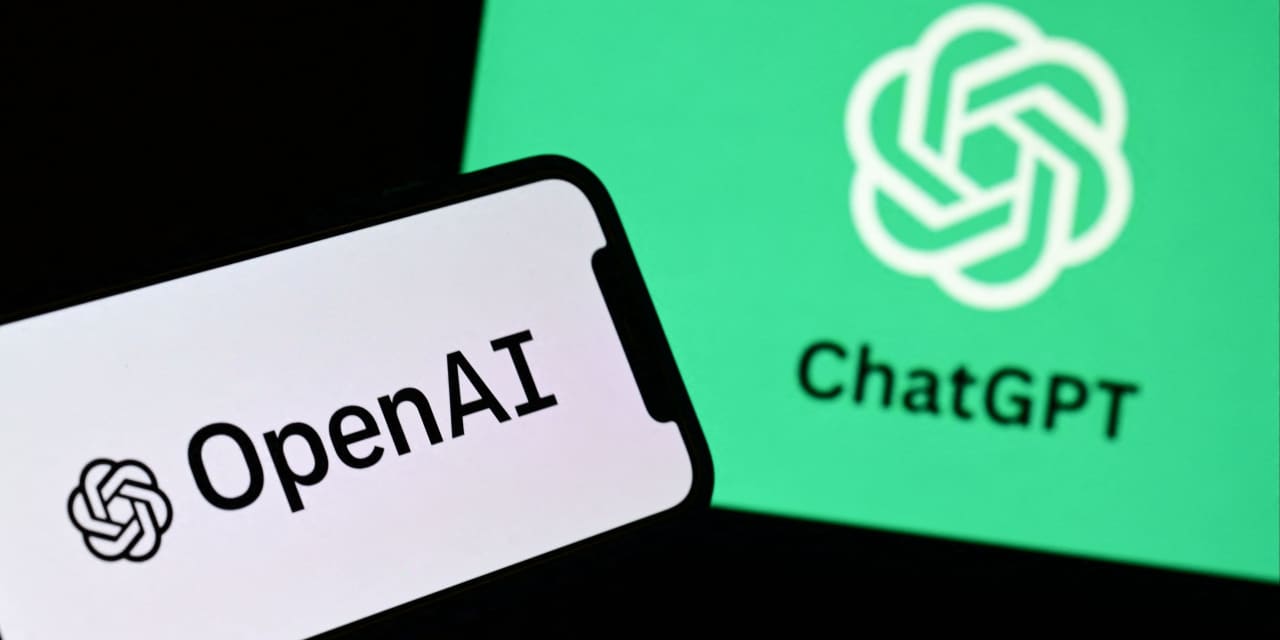New York Times shares rose on Wednesday after the media company filed a federal copyright lawsuit against Microsoft Corp. and ChatGPT creator OpenAI in a legal action expected to shape the debate over generative-artificial-intelligence technologies.
New York Times shares
NYT,
rose 1%, while Microsoft’s stock
MSFT,
fell by 0.2%.
In a suit that may have a wide impact on the future of the news-publishing business, the New York Times is seeking “billions of dollars
in statutory and actual damages” for unlawful copying of its content.
The lawsuit alleges that technology companies including Microsoft and OpenAI used its content without authorization to create AI products. Microsoft launched an AI-powered chatbot, Copilot, earlier this year.
The media company said the defendants in the suit avoided spending the billions of dollars that it had invested in news gathering by using that work “without permission or compensation.”
Microsoft and OpenAI did not immediately comment on the suit, according to reports. [Microsoft has invested about $13 billion into OpenAI.]
Gen-AI, which includes ChatGPT, was built using large-language models that tapped millions of news articles copyrighted by the New York Times, the lawsuit said.
“Defendants seek to free-ride on The Times’s massive investment in journalism by using it to build substitutive products,” the lawsuit said.
OpenAI’s valuation has risen to as high as $90 billion since the release of ChatGPT, the lawsuit said.
The New York Times also said it attempted to negotiate a settlement with the defendants but reached no resolution.
“Defendants insist that their conduct is protected as ‘fair use’ because their unlicensed use of copyrighted content to train GenAI models serves a new ‘transformative’ purpose,” the lawsuit said. “But there is nothing ‘transformative’ about using The Times’s content without payment to create products that substitute for The Times and steal audiences away from it.”
As an example, the 69-page lawsuit filed in the U.S. District Court Southern District of New York cites a five-part series on predatory lending published by the New York Times in 2019 that was recited nearly verbatim by ChaptGPT.
More broadly, the lawsuit underscores a storming debate among white-collar professionals who fear AI has the potential to marginalize them. One particularly vulnerable group, journalists, are concerned some aspects of their jobs can be replicated by chat bots — or outright copied.
Kristin Tate, an analyst with Young Americans for Liberty, a libertarian student activism organization, says that the so-called laptop class — including writers, human resource officers, lawyers, artists and even coders — will increasingly be replaced by AI. Conversely, she says, blue-collar workers will enjoy greater job security.
AI could eventually replace the equivalent of 300 million full-time jobs, according to a Goldman Sachs report published in March.
Job cuts come as businesses waste no time adopting advanced AI technology to automate a range of tasks — including creative work, such as writing, as well as administrative and clerical work.
Read the full article here




